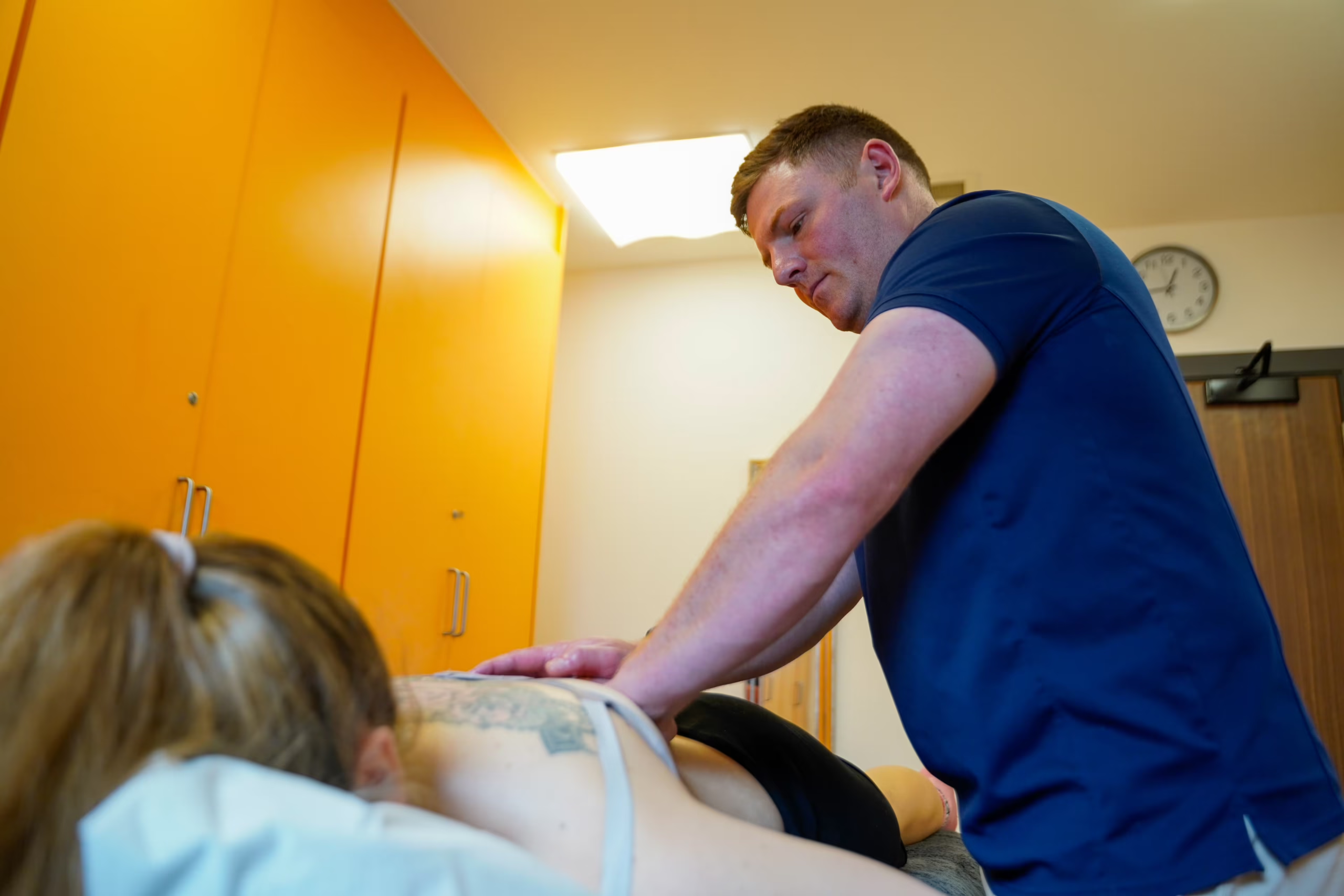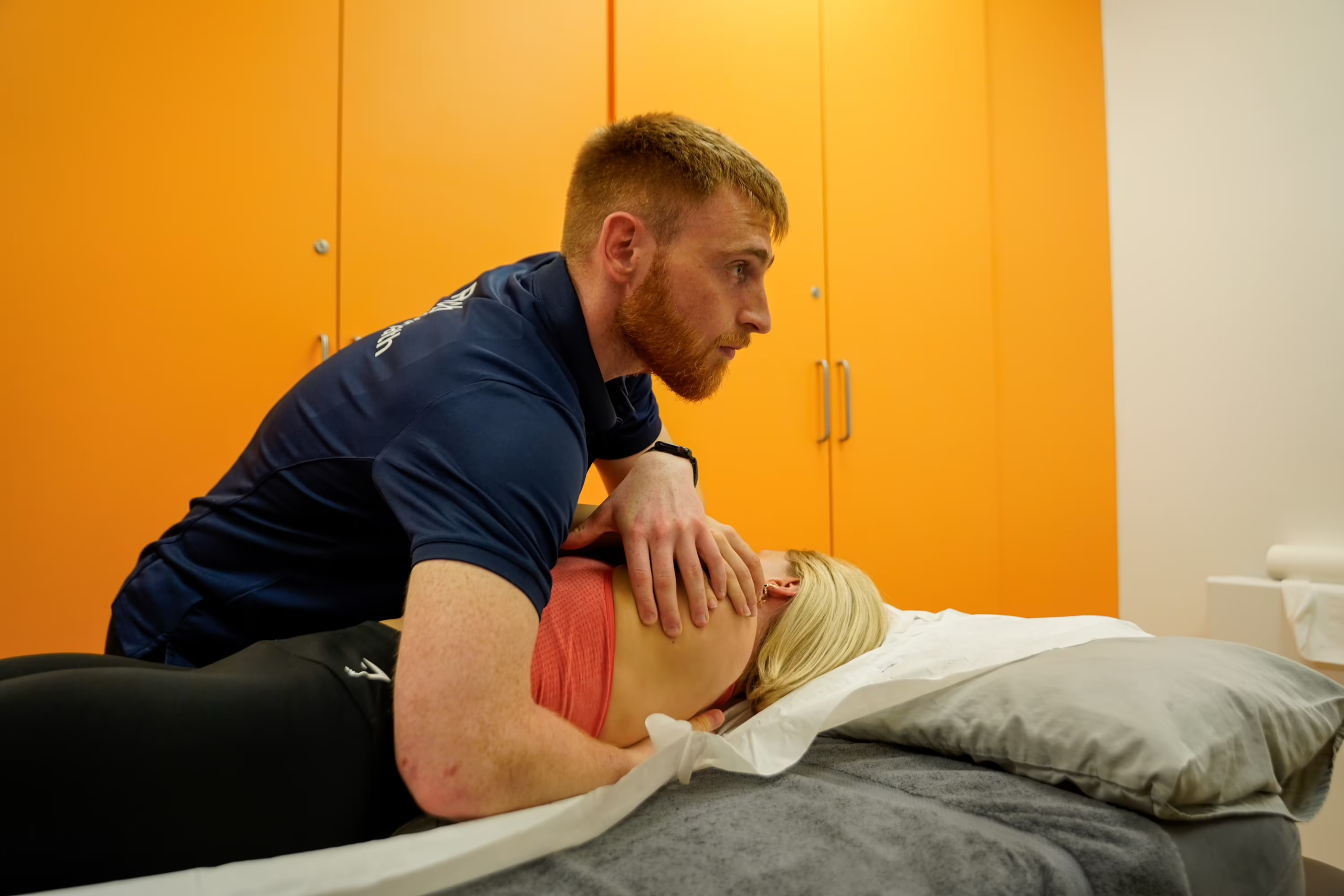Lower Back Pain
This is one of the most common problems that people suffer from today. The causes can be as wide ranging as the symptoms and intensity of pain. Statistics show that 80% of people will suffer from ‘non-specific low back pain’ in their life.
Often this resolves itself, however, if this repeats itself, even once it is worth getting your back assessed by a professional who should be able to tell you what is causing the problem (a diagnosis) and the best course of action; whether that be treatment, referral, stretches and/or pain management.
Symptoms:
- Intense throbbing or pounding pain often felt in the head, forehead or back of the eye
- Pain is one sided however in a third of cases and be bilateral
- Nausea, vomiting and diarrhoea
- Light and sound sensitivity; suffers often prefer dark and quiet rooms


Symptoms
- Non specific low back pain – Low back pain can often be caused by chronically poor posture which places the muscles and joints under more strain. Over time this can bring on early stage arthritis of the joints in the back, known as spondylosis.
- Facet Joint irritation – These are the paired joints that run up the length of the spine. Their main function is to transfer weight. They are also used a lot to relay messages to the brain about the spine position in space, also known as proprioception. Due to the high density of nerves they are often very painful and have limited range of movement in the back but the symptoms do not last very long.
- Disc Injury – Discs separate the vertebrae and are the spine's shock absorber. They are usually damaged through poor posture whilst lifting/carrying, twisting movements to end range or over time as the disc height reduces with age. The variety of damage can be from a small strain (annular strain) to a full prolapsed disc which can then cause nerve irritation in the leg (sciatica). There are several tests that can be done to rule out certain things and imaging (x-rays and MRIs) may help to diagnose the problem.
- Muscle Spasm – there are small intrinsic muscles of the spine which are responsible for our posture. If these become strained or irritated they can go into an acute spasm. These can be very painful, restrict most ranges of movement and cause a change to your posture i.e. bent in a certain direction
If there is any change to your bowel or bladder habits whilst you have back pain; i.e. you are suffering bowel incontinence or bladder retention then you should visit A+E immediately.